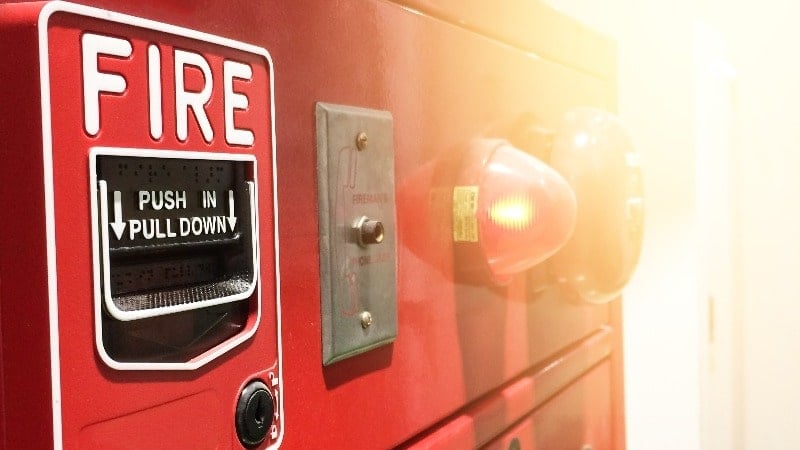Making the Switch: Vendor Transition Guide
Switching fire and security vendors feels risky. Even if your current provider isn't meeting your needs, the thought of transitioning systems and...
 |
Fire protection professionals committed to safeguarding lives, property, and peace of mind. |
 |
Solutions designed for your property type, from multi-family housing to healthcare facilities to retail spaces. |

|
Fire alarm, area of refuge, camera, and card access monitoring services. |
 |
Clear communication and instant response when every second counts. |
 |
From kitchens to server rooms, the right protection for every space. |
 |
Keep your primary defense system ready and reliable. |

|
Manage all your properties' access from one simple platform. |
 |
Monitor multiple properties in real time from anywhere, at any time. |

|
Document upcoming maintenance appointments and improve your proactive budget planning. |
 |
Fire Extinguisher Maintenance Checklist Learn the requirements for testing extinguishers monthly, annually, and beyond. |

|
Track all your inspection deadlines in one place. |
 |
Kitchen Hood Inspection Checklist Ensure your kitchen hoods are safe and compliant. Download a complete list of testing requirements. |

|
Guide to Fire & Security Monitoring Your complete property protection handbook in practical terms. |

|
Running a food truck takes work—this guide gives you the tools to keep it safe and up to code. |
 |
Comprehensive Guide to NFPA 13 and NFPA 25 Fire Sprinkler Systems Navigate sprinkler system requirements with confidence using our straightforward guide to codes and maintenance. |

|
Get your essential compliance guide. |
 |
When reliability matters across 18 restaurants, micromanagement doesn't. |

Fire safety systems are designed to save lives and properties during a fire. Some Minnesota buildings are required to have a fire alarm and automatic sprinkler systems. But what happens when one of these systems is damaged, offline, or down for scheduled maintenance?
That’s when you need to conduct a fire watch.
For all of the advanced, tech-driven fire alarm and sprinkler systems that can respond to a situation in milliseconds, sometimes you need an old-fashioned approach to safety. You guessed it, a fire watch is someone standing by, looking for any fire, smoke, or heat sources that may trigger a fire. It sounds basic, but it’s important and required in certain situations.
Having a fire watcher on hand is a temporary measure required by the National Fire Protection Association’s NFPA 101 Life Safety Code. The NFPA 25 Standard for the Inspection, Testing, and Maintenance of Water-Based Fire Protection Systems adds to this by requiring the fire watch to be conducted by trained personnel. For this reason, it’s important to work with a qualified fire safety contractor to ensure compliance and safety of your building and its residents.
During a fire watch, the fire safety contractor would be responsible for:
All areas of a building, including unoccupied and hidden areas, must be continuously patrolled for smoke, fire, and other hazardous situations.
Interestingly enough, none of the NFPA standards stipulate how much a fire system must be compromised for a fire watch to be instituted. As such, it’s crucial to initiate one whenever your fire system or any of the following equipment is not functioning as it should:
Please note that this is not a comprehensive list, which is why you should have a plan in place for any and all emergency impairments due to water supply issues, frozen or ruptured piping, equipment failure, etc.
As a building owner, it’s also important to note the following:
There’s a common misconception that a fire watch is only required when a fire protection system has been impaired for four cumulative hours in a 24-hour period (or 10 hours in the case of water-based systems). This isn't the case. The NFPA specifies a fire watch to be instituted if the sum of all outages exceeds the stipulated time frame in a 24-hour period.
Fire prevention systems can fail at any point. When they do, it's crucial to have a fire watch action plan in place. These policies can be complex due to the many AHJs (Authority Having Jurisdiction) that need to be notified. It’s also important to consider business interruption costs and legal liabilities when drafting up such a policy.
At Brothers Fire & Security, we can help you create a policy and take over your fire watch responsibilities. Get in touch with our fire safety experts to learn more.

Switching fire and security vendors feels risky. Even if your current provider isn't meeting your needs, the thought of transitioning systems and...

Your fire alarm shows a trouble signal. Last week's sprinkler inspection never happened, and despite three calls and multiple messages, your vendor...

Winter weather and holiday demands can make managing multi-location security a nightmare. Fall is your best window to upgrade security systems,...